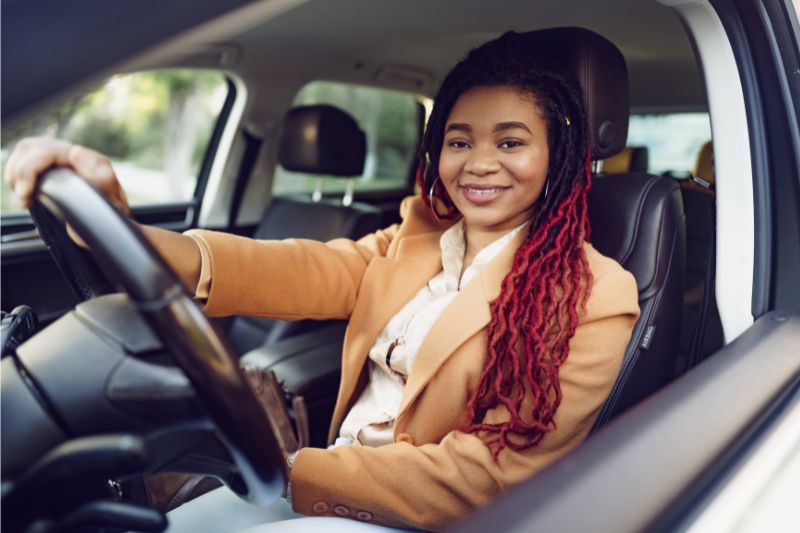Driving Journey: Essential Tips Before Your First Lesson

Learning how to drive is an exciting milestone that opens up new horizons of independence and freedom. However, it can also feel daunting as a beginner behind the steering wheel. Proper preparation before your first driving lesson ensures you make the most out of the learning experience.
Equipping yourself with essential driving knowledge, adopting smart driving habits, and embracing the learning process with an open mind will set you up for driving confidence and success. This comprehensive guide outlines key tips for gearing up for your inaugural driving lesson.
Familiarize Yourself with the Driving Environment
Developing familiarity with the key components of your car’s interior will help you adapt quickly and focus on controlling the vehicle during your first driving lesson. Here are some recommendations:
Practice Basic Car Controls
| Control | Purpose |
| Steering Wheel | Controls vehicle’s direction |
| Pedals | Gas for acceleration, brake for decelerating |
| Gearshift | Changes transmission gears |
| Mirrors | Rearview and side mirrors provide visibility |
Learn Your Car’s Layout
| Component | Purpose |
| Indicators | Signal turns and lane changes |
| Windshield Wipers | Clears rain, snow, and debris |
| Emergency Lights | Indicates stopped vehicle hazard |
Try Out Parking Maneuvers
Practice basic parking, such as parallel parking and reverse parking, in a safe environment like a parking lot. Have an experienced driver provide supervision and feedback.

Ensure Proper Attire and Footwear
Wearing comfortable clothes and appropriate footwear helps you react and move freely to control your vehicle’s pedals and wheel.
- Opt for non-restrictive clothes with flexible fabrics that won’t limit movement
- Wear sturdy, closed-toe shoes with good grip and support for using the pedals
- Avoid loose accessories like scarves or jewelry that could impede your driving motions
Proper attire keeps you focused on the road instead of distracted by discomfort.
Prepare Essential Driving Gear and Accessories
Having the right equipment and documentation helps your driving lesson run smoothly while keeping you prepared for common on-road situations.
Must-Have Items
- Driver’s license
- Proof of insurance
- Vehicle registration
Recommended Extras
- Mobile phone with hands-free device
- Small first-aid kit
- Flashlight for visibility in case of emergency
Checking you have these essentials will give you peace of mind out on the road.
Cultivate Good Driving Habits from the Start
Your first behind-the-wheel experiences pave the way for habits that become second nature over time. Emphasize these safe practices under your instructor’s guidance:
- Obey all traffic laws, signals, speed limits, and signs
- Maintain at least a 3-second following distance from other vehicles
- Use turn signals every time you change lanes or turn
- Position hands at 9 and 3 o’clock on the wheel and adjust as needed
- Place your foot correctly on the brake and gas pedal for optimal control
Building muscle memory for smart driving fundamentals from the beginning prevents the need to unlearn poor habits down the road.
Communicate Effectively with Your Driving Instructor
Clear communication establishes a positive rapport with your instructor, helping you learn efficiently.
- Ask questions proactively when you need more guidance
- Clarify instructions you don’t fully understand yet
- Specify areas needing more practice so your instructor can provide focus
- Debrief after each lesson to integrate feedback into the next one
Voicing concerns and responding to input demonstrates engagement in the learning process and accelerated skill development.
Constructive communication is the cornerstone of effective learning with your driving instructor. Proactive questioning ensures a thorough grasp of concepts, while clarifying instructions hones your understanding. Articulating areas requiring additional practice allows targeted skill improvement. Post-lesson debriefs are invaluable; they consolidate feedback, tailoring future lessons to your evolving needs.
This dialogue cultivates a dynamic learning environment, fostering engagement and swifter skill development. It transforms the driving education experience into a collaborative journey, strengthening your foundation for responsible and confident driving. Regular, open communication lays the groundwork for a positive instructor-student relationship, making your learning process smoother and more rewarding.
Embrace the Learning Process and Enjoy the Journey
Learning to drive in Brooklyn requires immense coordination of mind and body paired with complex cognitive processing. Be patient with yourself by:
- Maintaining realistic expectations for progress
- Celebrating small wins along the way
- Focusing on constant improvement over perfection
With an engaged, student mindset and commitment to safety, navigating the open road will shift from intimidating to exciting on your journey to driving independence!










Leave a Reply